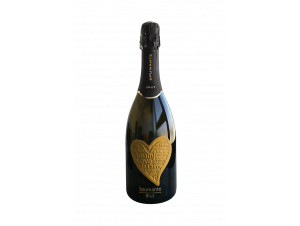You have no items in your shopping cart.
Sicile
Azienda Agricola Frank Cornelissen
(1 customer reviews)
Our philosophy of cultivation is based on the premise that man is incapable of understanding Nature in its entirety, its complexity and its interactions. We have chosen simply to observe and learn from Mother Nature's various energetic and cosmic progressions and changes, and we prefer to follow ... Find out more
-

Shipped in
secured packaging - -17%
-

Garantie anti-casse :
Prise en charge totale
The winemaker
Our philosophy of cultivation is based on the premise that man is incapable of understanding Nature in its entirety, its complexity and its interactions. We have chosen simply to observe and learn from Mother Nature's various energetic and cosmic progressions and changes, and we prefer to follow her indications rather than decide for ourselves what to do or not to do. Consequently, this choice has led us not to plough our land and to avoid all treatments, whether chemical, traditional, organic or biodynamic, since any treatment remains fundamentally an intervention by man, which ultimately only serves to highlight the human inability to accept and fully interpret nature as it is and as it will be. The divine capacity to understand the complexity of the universe does not belong to man, who is only a part of it. Nevertheless, man, feeding his egoism, pretends ever more to be God, altering Mother Earth's fragile equilibrium for reasons of yield and productivity, with deleterious consequences for all mankind.
Our estate covers around 12 hectares, including 8.5 hectares of alberello vineyards and the rest of olive groves, an ancestral Sicilian crop, almond trees and vegetable gardens. To avoid monoculture, we decided to replant fruit trees in the middle of the vines, and we manage a wide variety of spontaneous grasses; in addition, the presence of bees and other insects creates a more complex ecosystem that spares our vines from many diseases. The last vine was planted without the use of rootstock (pied-de-franc vine), using rods taken from pre-phylloxera vines from our best vineyard. We chose the traditional "alberello" (goblet) pruning, increasing the distance between the vines to allow for greater aeration and ventilation. Another advantage is that we can combine other crops, such as buckwheat and vegetables, which represent a source of natural compost characteristic of the environment on our very stony terraces. Our aim is to avoid any form of hoeing or field treatment. We've managed to achieve this even in particularly difficult years like 2004 and 2005. Nevertheless, in 2002 and 2003, due to heavy rainfall and excessive humidity, we had to treat with the traditional sulfur-copper preparation or risk losing the entire production. Since the start of the season, we've been programming very low yields per vine (around 300g) by means of short pruning. All the bunches are monitored throughout the season: we cut off their tails and remove any damaged or unripe grapes. Harvesting takes place quite late (between mid-October and mid-November) to ensure perfect ripening of the grapes, without over-ripening. We avoid using any additives at any stage of the winemaking process, and the wine is bottled without the use of SO2 (sulfur). The grapes are transformed through a delicate process: fermentation according to ancestral methods in terracotta containers (jars) of various sizes (150 - 400 liters) buried in ground lava stone. The entire mass (juice and skins) is left to macerate until the material has undergone total transformation (malolactic fermentation), bringing it into greater contact with the cosmic elements and extracting all the grape's terroir-specific aromas. This maceration lasts from 4 to 7 months and varies according to the wine and vintage. For the 2003 vintage, maceration lasted around 14 months. After pressing, the wine is returned to the jars to complete its cycle of rest and evolution for a further 18 months before bottling.
Olive oil has become a real passion for us, almost an obsession! The idea of producing an olive oil without compromising on production or economics has made us think about every little detail of production, from planting to extraction.
We apply the same quality standards to our oil as we do to our Magma® cuvée. We start by choosing the variety, the precious San Benedetto, which expresses the terroir with the best definition. We select localities according to their aromatic character. We harvest by hand, in several passes. Then we select the olives, sorting them one by one, choosing only perfectly healthy, ripe drupes. Transported in 5 kg crates, specially prepared with linen protective covers, we proceed to the traditional stone crushing process, which preserves the integrity of the aromas. Next, the paste is pressed exclusively with the estate's own discs, further guaranteeing its integrity. The oil is then placed in glass carboys for a minimum of 2 months, to allow it to settle naturally, and finally bottled without filtration. This liquid gold is called Magma® because of its strong territorial identity. Bread, which has always been the staple food of mankind, especially in Sicily, which has always been the center of high-quality durum wheat (semolina) cultivation, seemed an inevitable choice and led us to integrate this crop into our agricultural activity. While researching the area, we came across two varieties of durum wheat that were grown in the past: Preziosa and Timilia. Following the death of our shooting horse, Asturia, we had to postpone the cultivation of these two wheat varieties. Buckwheat, on the other hand, is a highly nutritious and useful mountain crop that helps in arid terrain, and we cultivate it by hand on terraces, in the olive grove and in the vineyard. Our aim is to create a self-sustaining agricultural reality, with production that fully respects Mother Earth and does not exhaust her resources. A balance that takes time.
Authentic, high-quality, uncompromising production that respects the environment undoubtedly has considerable costs, which we need to be able to sustain if we are to continue producing and maintaining a high level of quality. When we calculated the production costs involved in setting the sales price for Magma® and MunJebel®, we had the feeling that both products were likely to be sold at high prices. We therefore decided to offer MunJebel® at a lower price, and in return to increase the price of Magma®. In Magma® we believe we can offer you the highest expression of terroir, and in MunJebel® a link with the tradition of this Mount Etna region, accessible to enthusiasts. A social pricing policy. We also produce a humbler, simpler wine: il Rosso del Contadino. Made from a variety of grape varieties grown on our land, and always true to our production philosophy, this wine has less definition of terroir than MunJebel® e Magma®, but is still very easy to drink.
To obtain products of great authenticity, we do not use additives to stabilize or preserve them: we seek to shape products that can express themselves freely. For this reason, it is imperative that the wines are transported and stored at a temperature below 16°C.
When you open one of our bottles, we advise you not to decant it, but rather to serve it in large glasses (Burgundy type) at cellar temperature (12-16°C) and to follow the development of the aromas (from the beginning). Our wines only benefit from their natural defenses, and after a few hours' exposure to air, they change color, turning lava black. Not to worry! The bouquet then becomes much more complex.

8 wine's scans
on Twil application
on Twil application
You might like Voir tous les vins de la région
- -20%















 TWIL - Achat de Vin
TWIL - Achat de Vin


